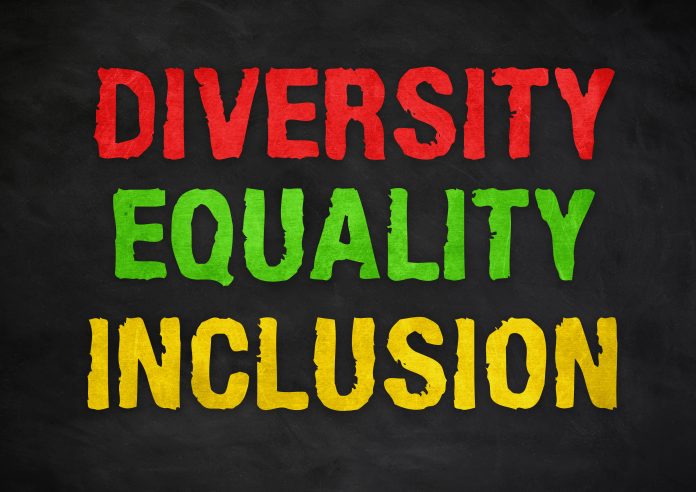Here, the Editor of Open Access Government, Jonathan Miles, charts the European Commission’s commitment to inclusion and equality, examining some recent policy initiatives in this vein
“Strengthening Europe’s commitment to inclusion and equality in all of its senses, irrespective of sex, racial or ethnic origin, religion or belief, disability, age or sexual orientation,” will be the subject of this article. This is how the European Commission describes a key responsibility of the European Commissioner for Equality, Helena Dalli. (1) Let’s look at the examples of the ethnic group Roma, women during the pandemic and those with disabilities to support the above-quoted policy statement.
International Roma Day
To mark International Roma Day on 8th April, Commissioner Dalli with Vice-President for Values and Transparency, Vĕra Jourová and Commissioner for Neighbourhood and Enlargement Negotiations, Olivér Várhelyi, celebrated the unique contribution to European diversity and heritage that Roma make. However, prejudice, discrimination, anti-gypsyism are still experienced by Roma, as well as socioeconomic exclusion daily. Therefore, the European Commission must do all they can to combat the present crisis Roma face and usher in real change on the ground.
The EU Roma Strategic Framework – is an ambitious new 10-year plan that yearns towards equality for Roma in the EU, and further afield, something the aforementioned Commissioners explained in a joint statement. “The Framework includes comprehensive lists of measures to combat discrimination and antigypsyism, advance social inclusion, promote participation of Roma in society and ensure equal access to quality mainstream education, employment, health and housing throughout Europe.”
The Commissioners concluded that the commitment of Member States’ is crucial to achieving concrete results during the next ten years. “Europe still has a long way to go to achieve real equality for Roma, respect for diversity and mutual understanding for historical experience. By working together we can make a difference and unlock the huge potential of Roma for the benefit of both Roma themselves and Europe as a whole,” they say.(2)
International Women’s Day 2021
On 5th March 2021, the Commission published its 2021 Report on Gender Equality in the EU (3), which highlights the negative impact that the COVID-19 pandemic has had on women. Certainly, the pandemic has not helped with the existing inequalities between women and men in most areas of life, in Europe and beyond, the European Commission noted in a press release before International Women’s Day 2021. This unfortunate situation, we learn, rolls back the “hard-won achievements of past years,” the press release states.
Gender equality is at its highest point now on the EU’s political agenda as evidenced by the Gender Equality Strategy adopted in March 2020. Concerning this, Commissioner Dalli, remarks: “Despite the disproportionate impact on women’s lives due to the COVID-19 crisis, we need to use this situation as an opportunity. We are determined to strengthen our efforts, continue progressing and not allow a backlash on all the gender equality gains made”.(4)
Strategy for the Rights of Persons with Disabilities 2021-2030
Also in March 2021, the Commission unveiled its Strategy for the Rights of Persons with Disabilities 2021-2030. The Strategy calls for their full participation in society, and while past decades have ushered in progress in access to healthcare, employment, education, recreation activities and participation in political life, several obstacles are still with us. The Commission, therefore, believes that it is time to scale up action on a European level.
The Strategy supports the United Nations Convention on the Rights of Persons with Disabilities at both the EU and national levels. “Since its inception, the European project focused on removing barriers, in line with its vision of a Union in Diversity. However, many persons with disabilities continue to face obstacles, for instance when looking for a job or using public transport”, Commissioner Dalli says. She adds: “People with disabilities should be able to participate equally in all areas of life. Living independently, learning in an inclusive environment, and working under appropriate standards are conditions that we need to ensure to all citizens to enable them to flourish and live life to the fullest.”(5)
Closing remarks on inclusion & equality
Of course, much more could be said on inclusion and equality, such as the urgent need to tackle anti-racism (6), equal pay for equal work (7) plus the EU’s strong commitment to eradicate female genital mutilation worldwide.(8) In this article, we have seen three useful examples to illustrate some of the remit of Commissioner Dalli. In her answers to the European Parliament questionnaire before taking up her current role, it’s interesting to note her comment about the values that Europe holds dear. In retrospect, this insightful comment underpins all she does in her current role. “I fully respect the fundamental values on which we have built Europe: human dignity and human rights, freedom, democracy, equality and the rule of law.” (9)
References
- (1) https://ec.europa.eu/commission/commissioners/2019-2024/dalli_en
- (2) https://ec.europa.eu/commission/presscorner/detail/en/STATEMENT_21_1604
- (3) https://ec.europa.eu/info/files/2021-report-on-gender-equality-in-the-eu_en
- (4) https://ec.europa.eu/commission/presscorner/detail/en/IP_21_1011
- (5) https://ec.europa.eu/commission/presscorner/detail/en/IP_21_810
- (6) https://ec.europa.eu/commission/commissioners/2019-2024/dalli/announcements/speech-commissioner-dalli-european-anti-racism-summit_en
- (7) https://ec.europa.eu/commission/presscorner/detail/en/SPEECH_21_1033
- (8) https://ec.europa.eu/commission/presscorner/detail/en/STATEMENT_21_401
- (9)https://ec.europa.eu/commission/commissioners/sites/default/files/commissioner_ep_hearings/answers-ep-questionnaire-dalli.pdf











